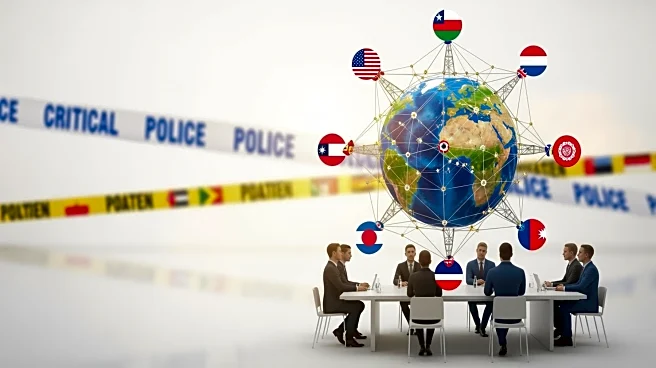What's Happening?
The European Union has introduced a new set of sanctions aimed at Russia's energy sector, complementing recent U.S. and UK measures. These sanctions include a ban on LNG imports from Russia starting in 2027
and a full transaction ban on major Russian oil companies Rosneft and Gazprom Neft. Additionally, the EU has sanctioned 117 vessels involved in Russia's 'shadow fleet' used to circumvent previous sanctions. The measures also extend to prohibiting reinsurance for Russian aircraft and vessels, and banning transactions with Russian electronic payment systems and certain banks in Belarus and Kazakhstan.
Why It's Important?
These sanctions represent a significant escalation in the economic pressure on Russia, aiming to weaken its ability to sustain its military operations in Ukraine. By targeting key sectors such as energy and finance, the EU and its allies are attempting to cut off critical revenue streams for the Russian government. The sanctions also signal a unified stance among Western nations, potentially influencing other countries to adopt similar measures. The impact on global energy markets and geopolitical relations could be substantial, as these actions may lead to shifts in energy supply chains and international alliances.
What's Next?
The sanctions are expected to further strain Russia's economy, potentially leading to increased domestic pressure on the Russian government. The EU and its allies will likely continue to monitor the effectiveness of these measures and adjust their strategies accordingly. The international community will be watching for Russia's response, which could include counter-sanctions or efforts to strengthen ties with non-Western countries. The situation remains dynamic, with potential implications for global energy prices and diplomatic relations.










